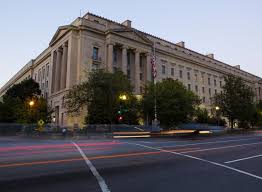FCPA 2019: A Record Year in Enforcement and Compliance (Part I of III)

Happy New Year!!
In the FCPA arena, 2019 was a record year – in enforcement and compliance.
Many continuing trends are becoming more than trends – meaning they are turning into established practices.
Enforcement
First, let’s start with the numbers. DOJ settled 7 enforcement actions and issued declinations in two cases. The seven cases involved MTS Telesystems, Fresenius, Walmart, Technip/FMC, Microsoft, Samsung and Ericsson. The two declinations involved Cognizant and Quad Graphics. Three cases included corporate monitors (MTS, Fresenius, and Walmart).
Second, DOJ indicted or earned guilty pleas from 34 individuals, a record year, and an increase over 26 individuals in 2018.
The SEC settled 12 corporate and 7 individual enforcement actions.

The total corporate fines earned by DOJ and the SEC was approximately $2.76 billion (with a B). 2019 eclipsed 2016, which totaled $2.4 billion, the last record year in FCPA enforcement penalties. DOJ settled two cases which landed in the top-10 for penalties – Ericsson was $1 billion and MTS was $950 million.
DOJ is increasing its transparency over enforcement actions. It has adopted and followed the FCPA Corporate Enforcement Policy requirements. This same policy now governs all corporate criminal actions except for the Antitrust Division which maintains its Leniency Program.
DOJ is focusing on large enforcement actions and often deferring to the SEC to handle more “routine” enforcement matters. This division of labor is an important one to watch. It makes sense for DOJ to concentrate on labor-intensive large cases, prosecute relevant individuals and leave the “less significant” or “smaller” cases for civil SEC enforcement.
DOJ also had a big year in criminal prosecutions of individuals. Senior officials have emphasized the importance of criminal prosecution of individuals as a real deterrent to bribery. DOJ has aggressively prosecuted foreign officials who are complicit in bribery schemes, charging them with money laundering violations.
DOJ had a positive year in criminal trials. After many years of interim appeals and resolving difficult legal challenges, DOJ convicted Lawrence Hoskins for his role in Alstom’s massive bribery schemes. In addition, DOJ convicted Mark Lambert for his role in a bribery scheme involving a Russian official. In a separate action, DOJ convicted two Haitian businessmen for their role in bribery of Haitian officials connected to a port construction project. This case involved the use of an undercover officer and Title III wiretaps
Compliance

At the same time, DOJ advanced its emphasis in ethics and compliance programs. In April 2019, DOJ issued its revised guidance for evaluation of corporate compliance programs. In doing so, DOJ injected new expectations surrounding corporate culture and the requirement that companies embed and manage their culture as a critical component of an effective ethics and compliance program.
DOJ continued to push the importance of the Chief Compliance Officer, and the requirements that companies ensure that the CCO has sufficient authority, resources and independence. DOJ’s expectations extend to mandates that compliance personnel are qualified and treated equally to other senior officials in the company.















